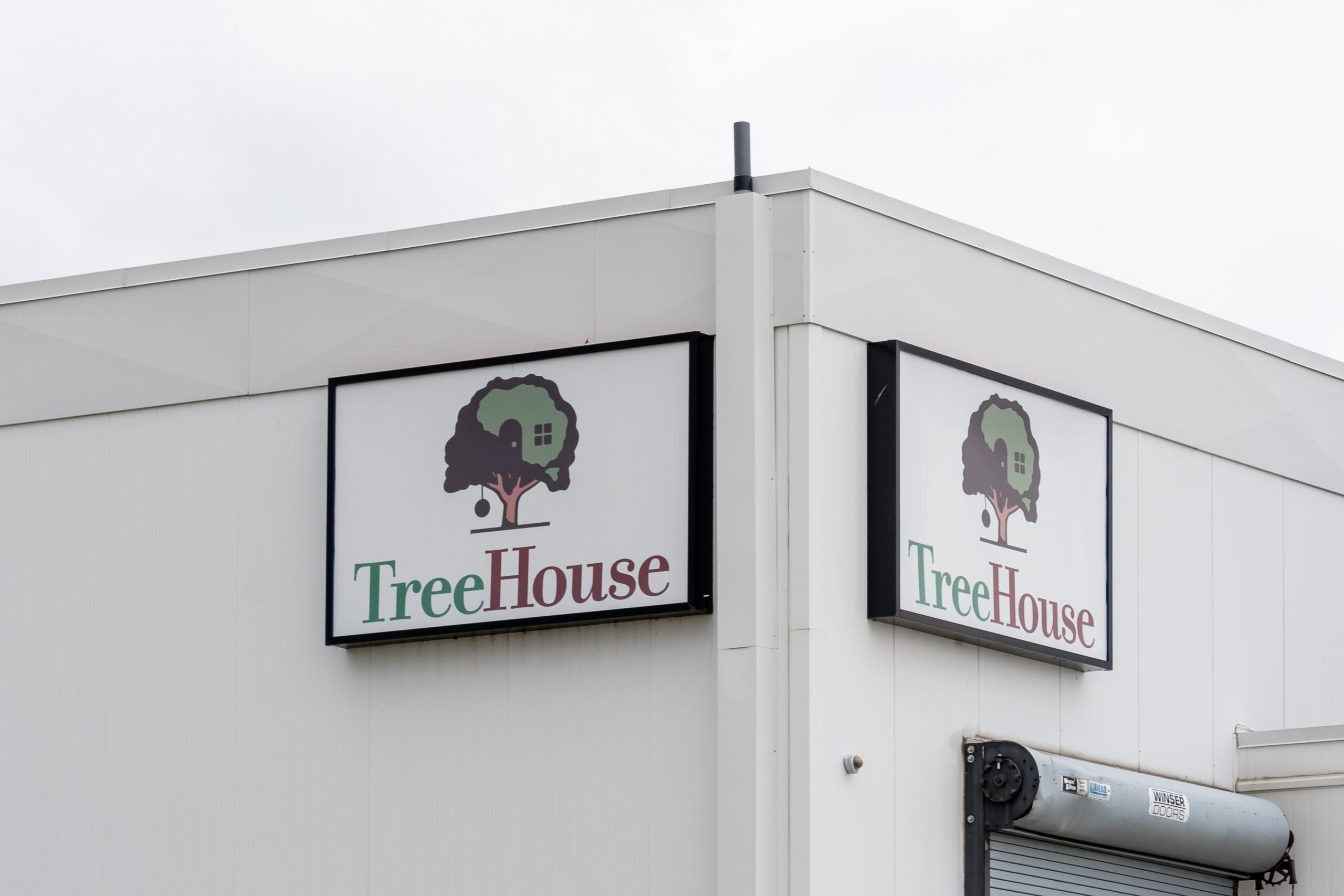
The “value” offered by private label is “becoming increasingly important” to US shoppers amid rising household costs and eroding savings, TreeHouse Foods’ CEO has said.
Steve Oakland, the chief executive of the largest manufacturer of own-label foods in the US, said private label is “a key part” of retailers’ product strategies as they try to attract consumers dealing with pressure on incomes.

Discover B2B Marketing That Performs
Combine business intelligence and editorial excellence to reach engaged professionals across 36 leading media platforms.
Speaking to analysts after TreeHouse Foods announced its first-quarter financial results, Oakland said the gaps between the prices of the company’s private-label products and those charged for branded lines were expanding.
“Price gaps have historically ranged from 26% to 30%. Gaps widened above this range to the low 30s more recently. This will vary from month to month but gaps at this level present the consumer with a more attractive private label value proposition,” he said.
“Today, given the absolute price point inflation, the dollar value savings of a basket of private-label goods is simply more substantial. As a result, consumer shopping patterns are beginning to shift and we’re seeing it in the data. Private-label unit share posted gains on a year-over-year basis. These have shifted meaningfully in the recent months and share in the most recent period is now trending slightly above pre-pandemic levels. This reaffirms the strong underlying fundamentals for private label.”
In the three months to the end of March, TreeHouse Foods grew its net sales 9.7% to US$1.14bn.

US Tariffs are shifting - will you react or anticipate?
Don’t let policy changes catch you off guard. Stay proactive with real-time data and expert analysis.
By GlobalDataThe company posted an operating loss of $40.7m, compared to income of $11m in the opening three months of 2021. It booked a first-quarter net loss of $3m, against income of $1.5m a year earlier.
TreeHouse Foods provides an “adjusted EBITDA” metric for its forecasts. In the first quarter, the group’s adjusted EBITDA fell 43.5% to $57.5m, hit by rising commodity and freight costs. TreeHouse Foods said those higher expenses had been “partially offset” by moves to increase its prices.
For the year as a whole, the company is forecasting “at least” an 11% rise in annual net sales and adjusted EBITDA of between $385m to $415m.
In 2021, TreeHouse Foods generated net sales of $4.33bn and adjusted EBITDA of $382.4m.
The company’s shares closed up more than 15% in New York yesterday (9 May) after the results were published.
TreeHouse Foods told analysts the company had yet to see any impact on elasticity, underlining how sales volumes had instead been impacted by its ability to service demand. The group said it had seen, like other manufacturers, challenges in staffing plants and disruption in sourcing inputs including packaging and ingredients. The situation, CFO Bill Kelley said, was improving.
“The service rates that we have are not close to our goal but they are improving. We’ve seen labour coming back into our plans and our teams continue to execute,” he said. “We think service will return to normalised levels, building in the back half and, as we exit Q4, we’ll be back to our normal rates. We continue to focus on that significant area.”
In March, TreeHouse Foods, which had been reviewing its entire business, ruled out a sale of the group but said it would focus more on snacks and beverages. Its meal preparations arm – which includes products such as pasta, dough and pasta – is still being considered for disposal.
TreeHouse Foods has been struggling for some time to improve value for shareholders despite a three-year process to eliminate thousands of SKUs, including the sale of the ready-to-eat cereals business to Post Holdings, and the disposal of some plants.
Oakland said the company’s board was mulling over options for the meal-prep division.
“If we chose to simplify our business a bit, would you do that in one large transaction or would you do it in several smaller ones? I think that’s really where the board is focused right now, understanding those dynamics,” he said.
“I think we want to make it very clear today that we do see the opportunity to invest in our higher-growth snacking and beverages business. And we’ll do that regardless of whether it’s through one large transaction or several small ones.”





